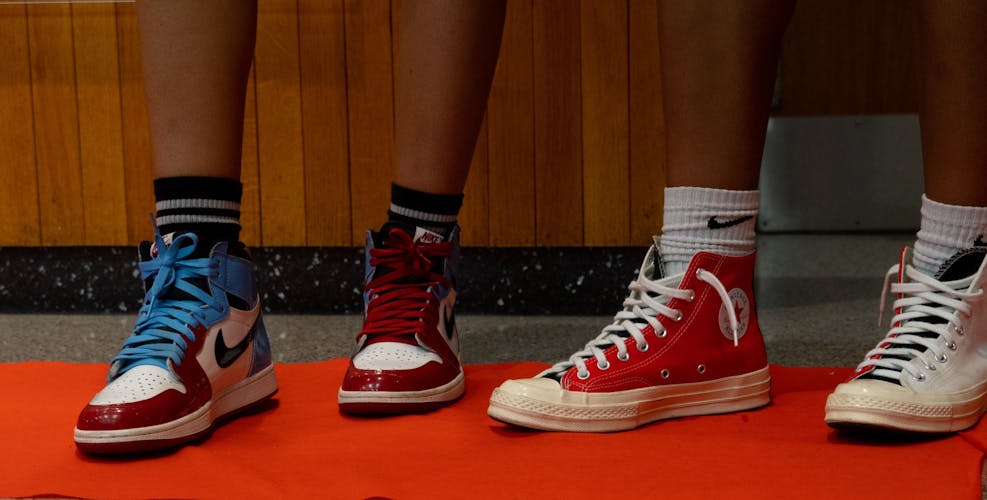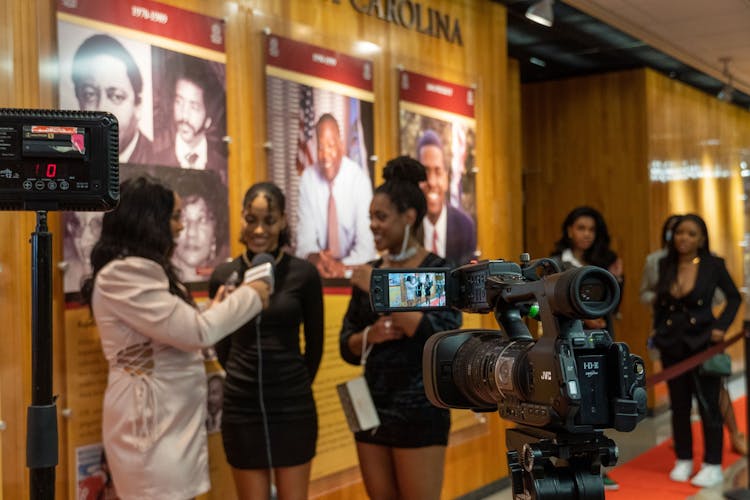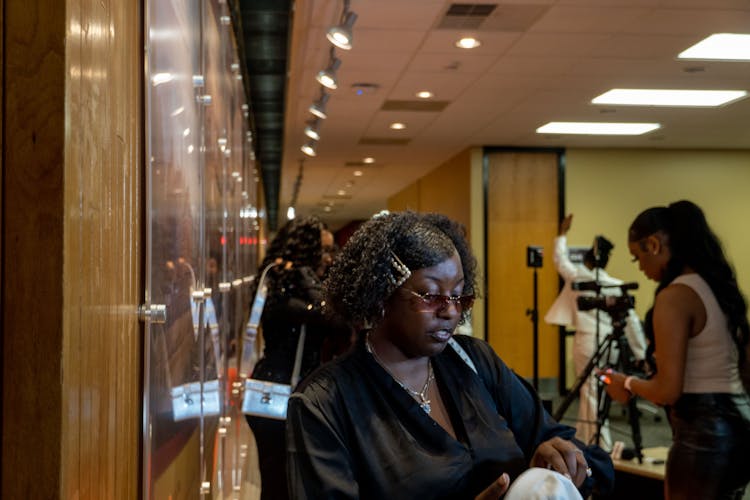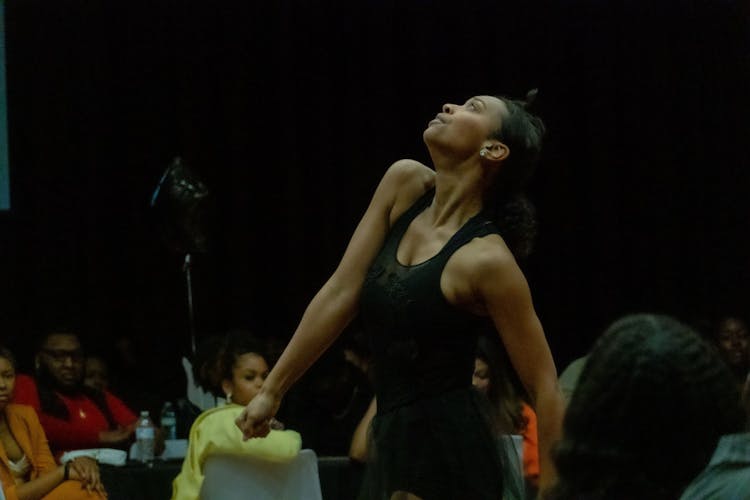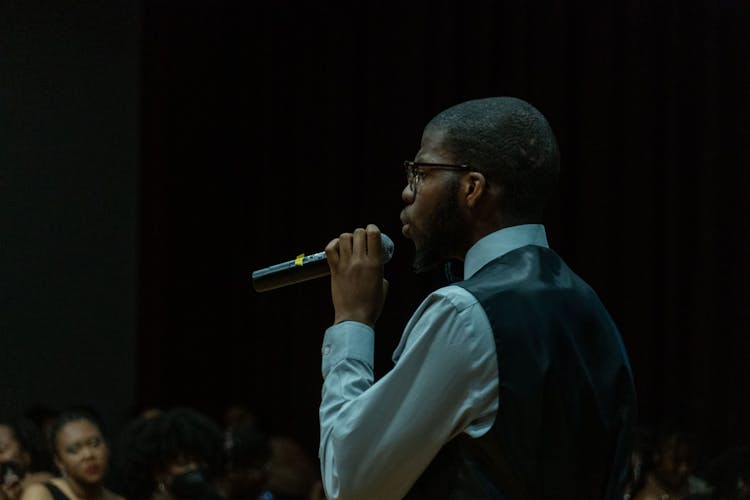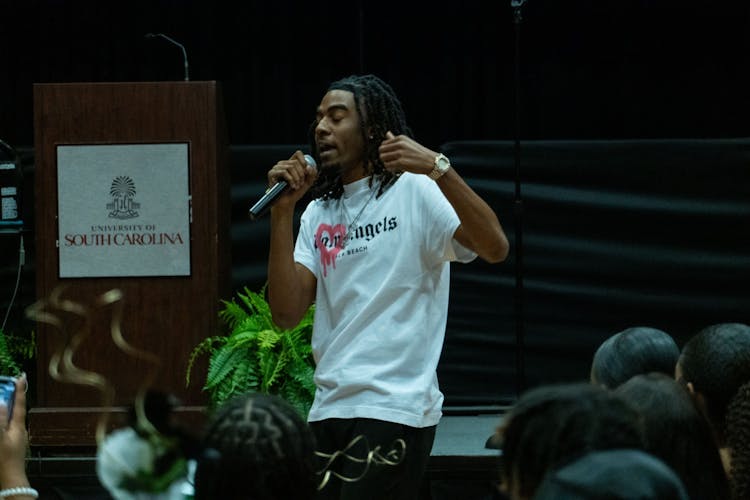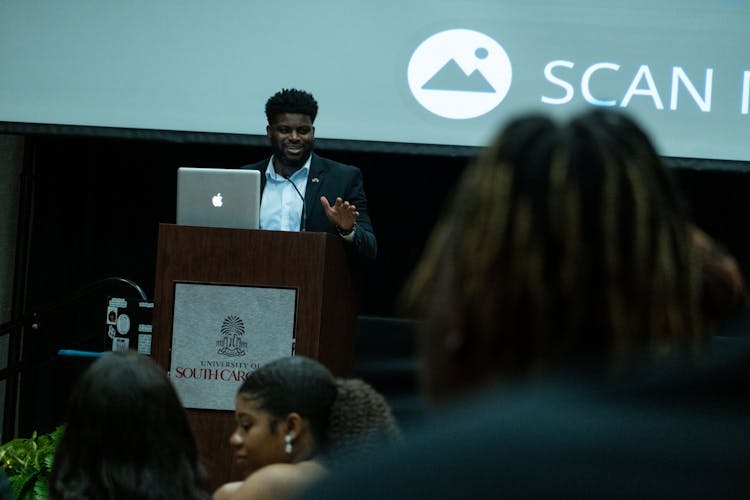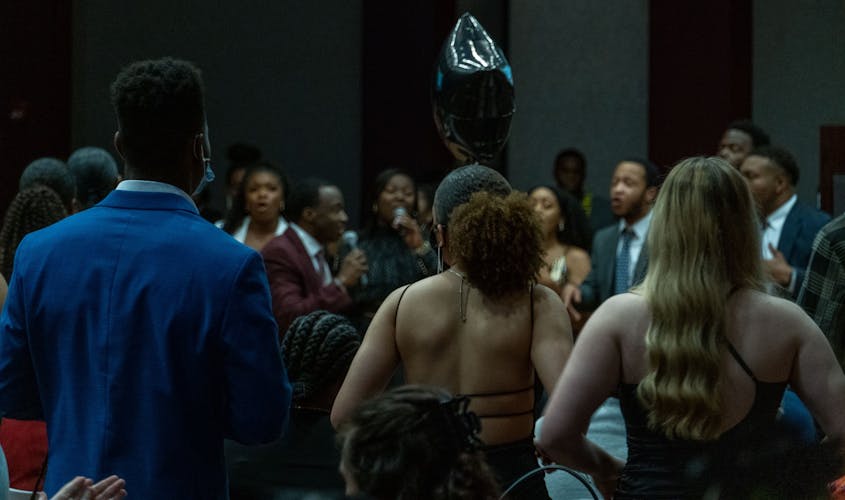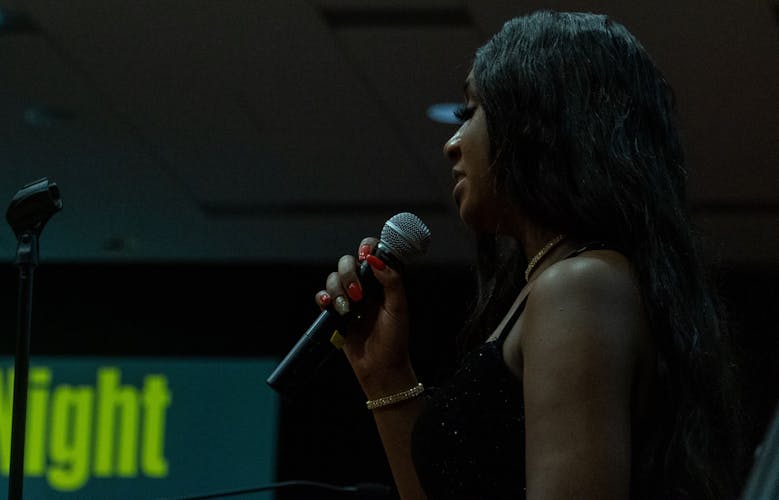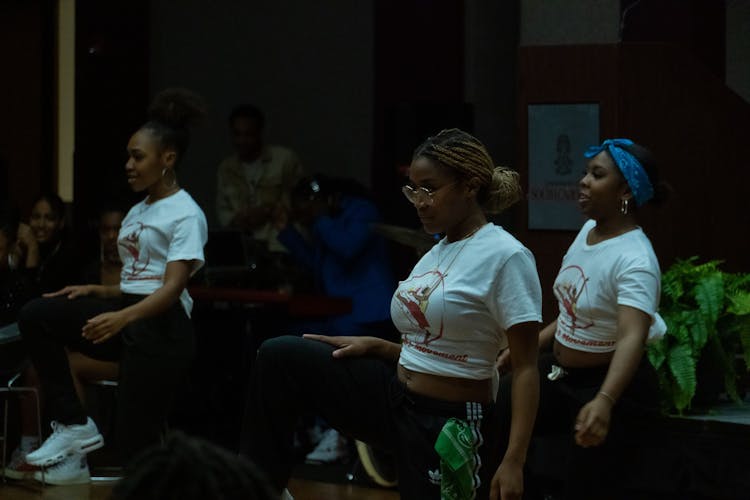Attendees of this year’s Back II Black Gala walked a red carpet outside of the Russell House Ballroom, donning long black dresses, Gucci belts and Air Force Ones. At the event, students and alumni celebrated Black excellence and unity amongst the Black community.
Brothers of Nubian Descent (BOND) and SAVVY, two major multicultural outreach groups at USC, reintroduced the Back II Black gala to USC Feb. 25 following a brief hiatus in 2021. The event's theme was “Stepping into Black Excellence.”
Crowds walked the red carpet, watched a variety of student performers and listened to special guest speaker, James Anderson.
Anderson, a deputy White House liaison and special assistant in the Department of Veterans Affairs, spoke to the large crowd on topics surrounding the pursuit of “Black excellence”.
He told personal stories about the persecution and pressure commonly faced by Black people who are striving to achieve success. He also gave advice on the importance of retrospection, determination and humility.
“You don’t have to be the smartest in the room," Anderson said. "Folks tell you that Black excellence is all about being better than your white colleagues — you have to be 20 times better. Don’t put that pressure on yourself. Be you, do the best that you can.”
It's important not to confirm to achieve success as a Black figure in a predominately white field, Anderson said. He told the crowd that he still listens to trap music and still sponges his hair because that’s what he did growing up, and he refuses to change who he is.
"If Black excellence exists, it’s because a bunch of Black folks who were constantly told no decided to chase their dreams and make a difference.” Anderson said.
The audience applauded Anderson’s speech and gave similar praise to other speakers and performers who performed in the gala’s talent roster. Gala attendees took group pictures, enjoyed meals provided by event organizers and watched fellow community members showcase a variety of talents.
Justin G. Mitchell, a second-year broadcast journalism student, was one of the many performers. He sang “A Change is Gonna Come” by Sam Cooke, a song that serves as an anthem for the civil rights movement and highlights the Black struggle in overcoming adversity.
Another performer, Aleceya Edwards, a fourth-year English student, performed two original poems titled “Toxic Ex” and “The Body and Mind of a Black Woman.”
Edwards, a member of SAVVY, worked behind the scenes during previous Back II Black galas. After receiving support from her peers and getting feedback on her poems from a published professor, she felt that it was time to finally take the stage.
“Honestly, walking off stage was probably the best feeling because walking up there, I was extremely nervous,” Edwards said. “To get the response that I did ... it just kind of solidified my mindset that I should've did this years ago.”
Back II Black aimed to provide a space for people to express themselves and showcase their talents to a community, a major goal of the gala from its formation in 2015, according to Shay Malone, the director of Multicultural Student Affairs.
“The idea of bringing in BOND and SAVVY to do this event was to share in the responsibility of showing the Black student culture here at the University of South Carolina and all the things that we have done, all the excellent things that we’ve done and to celebrate Black history and Black culture,”Malone said.
Several gala attendees spoke about how community events like Back II Black are important to USC because they allow Black students to connect with each other and build unity in a community that is often separated.
Anderson emphasized the importance of retaining one's culture and how to tackle the desire people of color may have to abandon individuality to better fit in to white spaces.
“A lot of folks will get in predominantly white spaces ... and they are sort of forced to go in a way that they otherwise wouldn’t have," Anderson said. "Be yourself, stay true to yourself, stay connected to your community."

